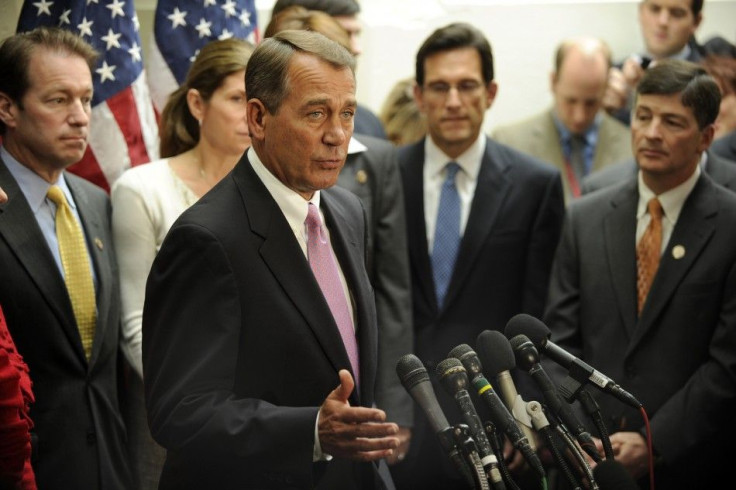GOP ‘Rolls the Dice’ - Is Party's Deficit Reduction Talks Walkout Bold or Reckless?

Sometimes in life, you 'roll the dice' with the goal of a better outcome. But when that dice roll occurs in Washington, it can have ripple effects that touch every American. Or nearly every American.
And that's what the Republican Party has done regarding the deficit reduction talks in D.C. - roll the dice, in its decision to quit the Vice President Joe Biden-led talks. Depending on your perspective, it's either a bold move or one that represents a dangerous political miscalculation. Here's the issue's essence:
House Majority Lead Eric Cantor, R-Va., and U.S. Senator Jon Kyl, R-Arizona, quite the talks Thursday, ABCNews reported, saying they won't be part of any Democratic effort to increase taxes. The position is hardly a novel one for the GOP, which appears to have evolved - perhaps as a result of Tea Party influence - from a 'low taxes' party to a 'no tax increase, ever' party.
However, the GOP's postmodern stance is riddled with risks. If the Cantor/Kyl stance is set in stone, and Democrats insist that revenue increases must be a part of the talks for any meaningful and enduring deficit reduction to occur, by logical extension there can't be an agreement on deficit reduction.
Further, because it's unlikely that Congressional Republicans - particularly the GOP-led U.S. House - will vote to raise the debt ceiling without a deficit reduction package to their liking (translation: that features just spending cuts and related program changes that reduce federal outlays), that means the debt ceiling will not be raised by the August 2 deadline - the date the U.S. Treasury says it will run out of money.
In other words, unless current GOp or Democratic political positions change, the United States - the largest and most technologicaly-advanced economy in the world - may fail to pay it obligations on time.
Suffice it to say, U.S. and global stock and bond markets, among other markets, will not react politely to a U.S. Government default, so the compelling question remains: will the GOP stand firm on its 'no tax increase, ever' position, or is it merely a negotiating posture to extract more spending cuts and related concessions from Democrats?
Put another way, is the GOP willing to trigger a U.S. Government default - and all of negative consequences that stance implies for stock, bond, and currency markets...and for the U.S. economy? And isthe no tax stance what's needed to break the social welfare state mentality that's been intrinsic to the U.S.'s mixed-capitalist system since FDR? Is the GOP being reckless beyond belief, or bold?
Only time will tell, but one thing is certain: this latest roll of the dice by the GOP is fraught with risk.
© Copyright IBTimes 2025. All rights reserved.



















